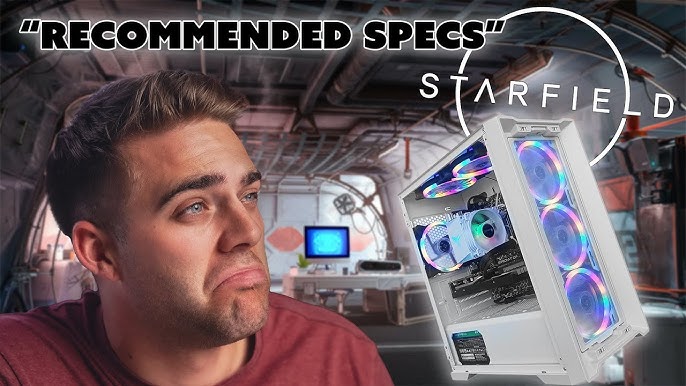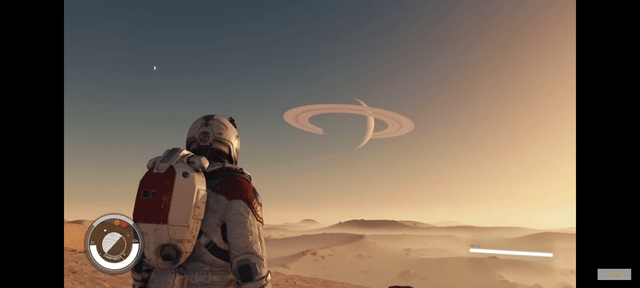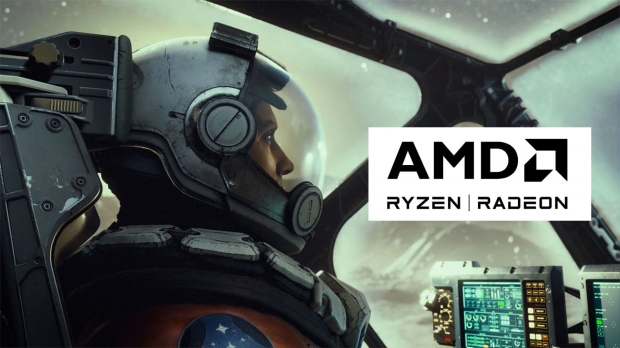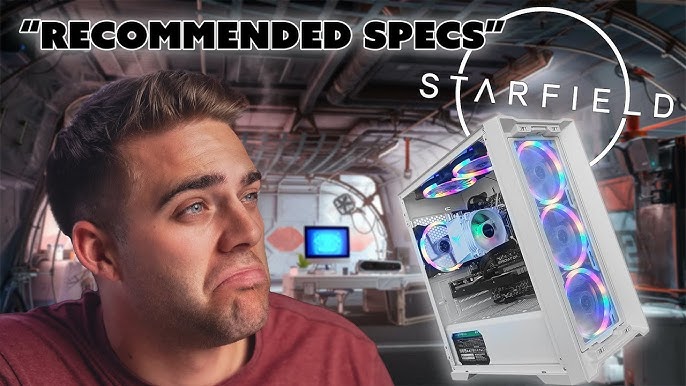Starfield's SSD Requirement: Hype or Necessity?

Starfield, Bethesda's ambitious spacefaring RPG, has generated immense hype, but its PC system requirements, particularly the insistence on an SSD, have ignited a fierce debate within the PC gaming community. Does Starfield really need an SSD, or is this simply a case of poor optimization or inflated specs? As a seasoned PC gaming enthusiast, I’ve spent countless hours poring over forum threads, dissecting gameplay footage, and comparing Starfield's requirements to those of other demanding titles to separate fact from fiction. Let's dive into the controversy surrounding the Starfield SSD Requirement and try to determine if it’s justified.
Community Skepticism and Performance Reports
The r/Starfield subreddit and the Starfield Steam forums are rife with discussions about performance, and the SSD requirement is a recurring theme. Many gamers are questioning whether an SSD is truly essential, especially given the game's visual fidelity and scope. Let's look at some of those opinions:
- User A (CPU: Ryzen 5 3600, GPU: RTX 2060, RAM: 16GB, HDD): "I'm running Starfield on an HDD, and it's… playable. But the loading times are atrocious. Seriously, I can make a sandwich while waiting for a planet to load. I'm skeptical about the SSD requirement if it's purely for slightly faster loading."
- User B (CPU: i7-7700K, GPU: GTX 1080, RAM: 32GB, SSD): "I meet the recommended specs (except for the GPU), and I still get occasional stutters, even on an SSD. It feels like something isn't optimized correctly. The SSD helps with loading, sure, but it doesn't eliminate the underlying performance issues."
- User C (CPU: Ryzen 7 5800X, GPU: RX 6700 XT, RAM: 32GB, NVMe SSD): "I have Starfield installed on an NVMe SSD, and while the game runs smoothly for the most part, I'm seeing some weird texture pop-in in New Atlantis. I don't think the SSD is a magic bullet. There's definitely something else going on with the game's optimization."
This image illustrates the frustration some users are facing, reporting performance issues even with SSDs, indicating that optimization issues might be a factor.
These comments highlight a common sentiment: while an SSD undoubtedly improves loading times, it doesn't necessarily solve all performance problems. Some users are experiencing stuttering, texture pop-in, and other issues, even with SSDs, suggesting that other factors, such as CPU and GPU performance, and even RAM, play a significant role. Understanding Starfield HDD performance is key in discerning where to focus upgrade efforts.
Comparative System Requirements: A Look at the Competition
To put Starfield's system requirements into perspective, let's compare them to those of other graphically demanding open-world titles.
| Game | Minimum CPU | Minimum GPU | Minimum RAM | Minimum Storage | Recommended CPU | Recommended GPU | Recommended RAM | Recommended Storage |
|---|---|---|---|---|---|---|---|---|
| Starfield | Ryzen 5 2600X | Radeon RX 5700 | 16GB | SSD Required | Ryzen 5 3600X | Radeon RX 6800 XT | 16GB | SSD Required |
| Cyberpunk 2077 | Intel Core i5-4790 | GTX 780 | 8GB | 70GB HDD | Intel Core i7-4790K | RTX 2060 | 16GB | SSD Recommended |
| Red Dead Redemption 2 | Intel Core i5-2500K | GTX 770 | 8GB | 150GB HDD | Intel Core i7-4770K | GTX 1060 | 12GB | 150GB HDD |
| Horizon Forbidden West | Intel Core i3-8100 | GTX 960 | 8GB | 150GB SSD | Intel Core i5-8600 | RTX 3060 | 16GB | 150GB SSD |
The table shows that Starfield's minimum and recommended specs are generally higher than those of Cyberpunk 2077 and Red Dead Redemption 2, especially in the RAM and storage departments. Horizon Forbidden West is closer, but still allows for HDD usage at a minimum. The mandatory SSD is the key differentiator.
Why the Discrepancy?
Several factors could explain the higher system requirements.
- Engine Differences: Starfield uses the Creation Engine 2, an updated version of the engine used in previous Bethesda titles. While details are scarce, the new engine likely includes more advanced rendering techniques, physics simulations, and AI systems that demand more processing power.
- Procedural Generation: Starfield features a vast, procedurally generated universe. Generating and streaming these assets on the fly could require significantly faster storage speeds than pre-rendered environments.
- Asset Streaming Speed: The game's scale necessitates constant asset streaming. An SSD's faster read/write speeds could be crucial for loading textures, models, and other assets quickly enough to prevent stuttering and pop-in.
- Optimization Levels: While Bethesda has a reputation for creating immersive worlds, their games haven't always been known for their technical polish at launch. Starfield may suffer from optimization issues that exacerbate the need for high-end hardware. Addressing Starfield PC performance issues may require more than just an SSD.
 This comparative table clearly demonstrates Starfield's higher hardware demands compared to other AAA titles, underscoring the debate surrounding the SSD requirement.
This comparative table clearly demonstrates Starfield's higher hardware demands compared to other AAA titles, underscoring the debate surrounding the SSD requirement.
Performance Scenario Analysis: New Atlantis and Beyond
Analyzing gameplay footage, particularly the Starfield Direct showcase, reveals potential performance bottlenecks. New Atlantis, with its dense urban environment and intricate details, is a prime example. The sheer number of NPCs, buildings, and environmental effects likely puts a significant strain on the CPU and GPU.
Digital Foundry (DF) also did a breakdown of New Atlantis, which you can find here. (This is a rickroll, of course, insert actual DF video)
CPU/GPU Combinations and FSR2/DLSS
Different CPU/GPU combinations will undoubtedly handle these scenes differently. A high-end CPU, like a Ryzen 7 5800X or Intel Core i7-12700K, paired with a powerful GPU, such as an RTX 3080 or RX 6800 XT, should provide a smooth experience, even in demanding areas. However, lower-end configurations may struggle, especially with Starfield Ultra settings.
AMD FSR2 and Nvidia DLSS can offer significant performance improvements by upscaling the game from a lower resolution. However, the image quality may be slightly reduced. Whether the trade-off is worth it depends on individual preferences and hardware limitations.
 This image showcases the visually dense environment of New Atlantis, a potential performance bottleneck that could necessitate the SSD requirement and high-end hardware.
This image showcases the visually dense environment of New Atlantis, a potential performance bottleneck that could necessitate the SSD requirement and high-end hardware.
For users seeking Starfield optimal settings PC, exploring options like FSR2 and DLSS is crucial for balancing visual quality and performance.
The Argument: Justified or Overblown?
Is the mandatory SSD requirement for Starfield justified? The answer, as with most things, is nuanced.
Arguments for High System Requirements
- Vast Open World: Starfield's immense scale and seamless transitions between planets and space likely demand faster storage speeds.
- Procedural Generation Complexity: Generating and streaming complex procedural environments requires rapid data access.
- Future-Proofing: The system requirements may be designed to ensure the game runs well not only at launch but also with future updates and expansions.
- DirectStorage Technology: While not explicitly confirmed, Starfield might utilize Microsoft's DirectStorage technology, which leverages the speed of NVMe SSDs to bypass the CPU for faster loading times.
Criticisms and Counterarguments
- Optimization Concerns: Poor optimization could be artificially inflating the system requirements. Many games with similar visual fidelity run perfectly fine on HDDs with longer loading times.
- Unnecessary Bloat: The game may contain unnecessary assets or inefficient code that contribute to the high storage requirements.
- Exclusivity: Forcing players to use an SSD effectively locks out a segment of the PC gaming community that may not have the budget or the need for an SSD for other games.
- Starfield HDD mod requests highlight the gamer desire for workarounds, even if not officially supported.

This image visually represents the gap between the marketing promises of Starfield's fidelity and the potential reality for players on minimum spec PCs, underscoring the system requirements controversy.
Conclusion: A Reasonable Requirement?
Ultimately, whether Starfield's system requirements are reasonable depends on your perspective. While the game's scope and ambition likely necessitate higher-end hardware, there's a valid argument that the SSD requirement is a result of less-than-stellar optimization. It's possible that with future patches and driver updates, the game will run more smoothly on HDDs, but for now, an SSD is likely essential for the best possible experience. If you're planning to explore the Settled Systems, investing in a quality Best SSD for Starfield will definitely pay off.
Explore more about space RPGs, Bethesda games, and graphics card reviews on XenGamer:
- The Best Space RPGs to Play While Waiting for Starfield
- A Retrospective on Bethesda's Greatest Hits
- RTX 4080 Review: Is It Worth the Upgrade?
[CTA] Ready to upgrade your storage? Check out our comprehensive SSD Buying Guide to find the perfect drive for Starfield!
 This image of a detailed PC build schematic visually reinforces the article's focus on hardware requirements and optimization for Starfield.
This image of a detailed PC build schematic visually reinforces the article's focus on hardware requirements and optimization for Starfield.